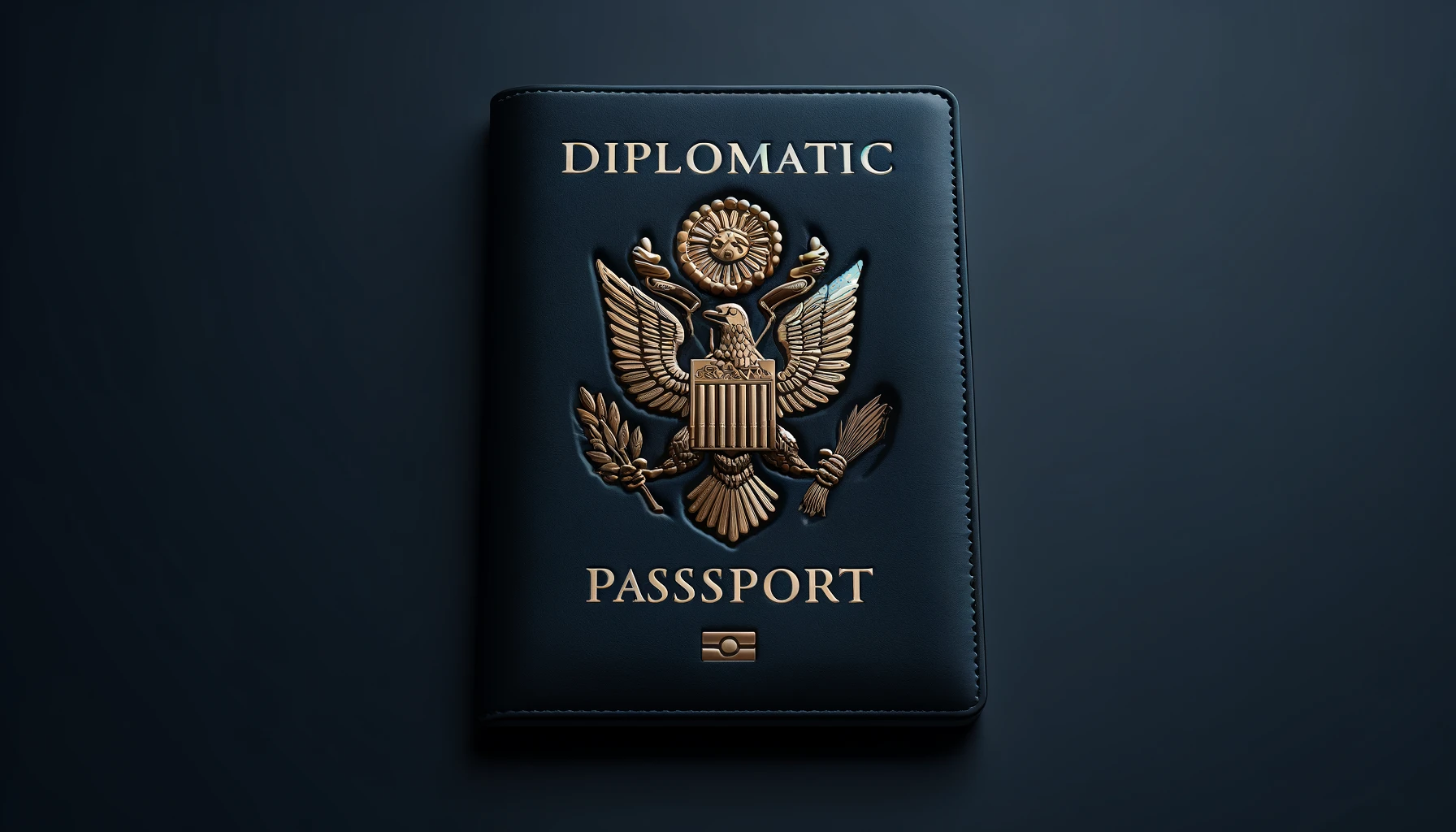What is a Diplomatic Passport? Benefits and Eligibility

Ever wondered what a diplomatic passport is? It’s a special type of passport for important government workers who travel to other countries for their jobs. This passport makes their travel easier because it skips long lines and doesn’t usually need a visa. It’s like a VIP pass for traveling, helping these officials do their important work smoothly and quickly. In this article, I Will Explain who can get this passport, why it’s so special, and how to apply for one.
Diplomatic Passport
Have you ever wondered what a diplomatic passport is? Just like a regular passport helps you travel between countries, a diplomatic passport is a special kind that some people use. It is given to very important people who work for their country’s government, helping them to travel easier when they go to other countries for work.
Read Also: Passport Biography page
What is a Diplomatic Passport?
A diplomatic passport is a type of passport given to people who are doing official work for their government in other countries. These people might be diplomats or government officials. Unlike regular passports, a diplomatic passport tells everyone that the person is there on official government business
The Importance of Diplomatic Passports
So, why are diplomatic passports so important? For starters, they make traveling easier for diplomats. With this passport, they don’t have to wait in long lines at airports, and they usually don’t need to get a visa, which is a special permission to enter a country. This helps them do their jobs better because they can move quickly and easily from one country to another.
Simply, a diplomatic passport is a special document that lets people who are doing jobs for their country’s government travel more easily. When someone has a diplomatic passport, it shows that they have an important job that helps their country connect and work with other countries.
Eligibility for a Diplomatic Passport
Which officials qualify
Diplomatic passports are usually given to people who work for their country’s government and need to travel to other countries for official work. These people include ambassadors, who are like messengers between countries, and other important government officials. Sometimes, the family members of these officials might also get a diplomatic passport so they can travel together.
Criteria for eligibility in various countries
United States: In the United States, not only diplomats but also top leaders like the President and the Secretary of State get diplomatic passports. Other government workers on special international jobs can also get one.
United Kingdom: In the UK, diplomatic passports are given to people working for the Foreign, Commonwealth and Development Office and their families if they need to travel for the government.
How Do Countries Decide?
Benefits of Holding a Diplomatic Passport
Legal Immunities and Protections
One of the most important benefits of having a diplomatic passport is legal immunity. This means that if a diplomat is in another country doing their job, they can’t be sued or arrested for things related to their work. This special protection helps them do their job without worrying too much about the laws of the country they are visiting.
Visa-Free Travel Opportunities
Imagine if you could travel to lots of different countries without needing a visa. That’s another benefit of holding a diplomatic passport! Many countries allow diplomatic passport holders to enter without a visa, which saves a lot of time and hassle. This makes it much easier and quicker for diplomats to travel around the world whenever they need to for their work.
Other Diplomatic Benefits
Application Process
Getting a diplomatic passport is a special process because these passports are not for everyone. Let’s look at how someone can apply for a diplomatic passport, step by step.
Documentation and Verification Process
| Requirement | Description |
| Official Identification | You must show proof that you are a government official, like an official ID card or a letter from your department. |
| Proof of Position | You need to provide evidence that your job requires a diplomatic passport, such as a job description or an official appointment letter. |
| Background Checks | Background checks may be conducted to ensure that you are a trustworthy individual suitable for holding a diplomatic passport. |
| Interviews | You might need to attend an interview to discuss your job and why you need a diplomatic passport. |
Security Features
Anti-Fraud Features
Diplomatic passports have several anti-fraud features, which are like secret codes and tricks that help prevent people from making fake passports. Here are some of the main features:
Challenges and Controversies
They help diplomats do their jobs better, but sometimes there are problems and debates about how these passports are used. Some of the challenges and controversies surrounding diplomatic passports, including past abuses and current debates on diplomatic immunities.
In some cases, people with diplomatic passports have used their special privileges, like not being checked at customs, to smuggle things that are not allowed. This is not good because it breaks the trust that countries have in each other.
Diplomatic passports give legal immunity, some officials have avoided punishment for things they did wrong in other countries. This can make people upset and feel that it’s not fair.






